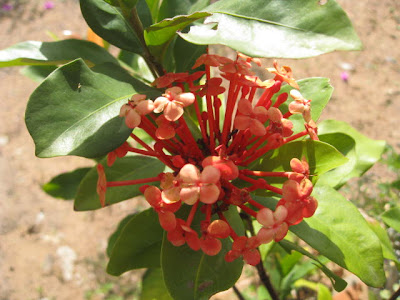Pasaron tres días y dos noches en su vivienda del campo. En el carro, retornando a la ciudad, el padre preguntó a su hijo —¿Qué te pareció la experiencia?...
What does it mean to be poor?A father, well-off economically, wanting that his son see what it is to be poor, took him to pass a couple of days in a rural area with a peasant family. They passed three days and two nights in the family's home. In the car on the way back to their home in the city, the father asked his son, "How was your experience?"
Buena, contestó el hijo con la miradapuesta a la distancia.—Y... ¿qué aprendiste?, insistió elpadre...El hijo contestó:• Que nosotros tenemos un perro yellos tienen cuatro. • Nosotros tenemosuna piscina con agua estancada quellega a la mitad del jardín... y ellostienen un río sin fin, de aguacristalina, donde hay pececitos, berroy otras bellezas. • Que nosotrosimportamos linternas del Orientepara alumbrar nuestro jardín...mientras que ellos se alumbran conlas estrellas y la luna. •
"Good," answered the son, looking out in the distance.
"And what did you learn?" the father insisted.
The son answered, "That we have one dog, while they have four. We have one pool with standing water that extends to the middle of our garden. They have a never-ending river, with crystal clear water, where there are little fish and other pretty things. We want Chinese lanterns to light our garden, while they light theirs with the moon and stars.
Nuestro patio llega hasta la cerca...y el de ellos llegaal horizonte. • Que nosotros compramos nuestracomida;...ellos, siembran y cosechan la de ellos. •Nosotros oímos CD's... Ellos escuchan una perpetuasinfonía de bimbines, chuíos, pericos, ranas, saposcocorrones y otros animalitos....todo esto a vecesdominado por la sonora saloma de un vecino quetrabaja su monte.
"Our patio reaches the sidewalk, theirs reaches the horizon. We buy our food, they plant and harvest theirs. We listen to CDs, they listen to the perpetual symphony of frogs, crickets, toads and other little animals...all of this at times dominated by the sound of a neighbor working his land."
• Nosotros cocinamos en estufa eléctrica...Ellos,todo lo que comen tiene ese glorioso sabor delfogón de leña. •Para protegernos nosotros vivimos rodeados porun muro, con alarmas.... Ellos viven con suspuertas abiertas, protegidos por la amistad de susvecinos. •
"We cook with an electric stove...Everything they eat has the glorious flavor of campfire wood. To protect ourselves we build walls with alarms. They live with their doors open, protected by the friendship of their neighbors."
Nosotros vivimos 'conectados' alcelular, a la computadora, altelevisor...Ellos, en cambio, están'conectados' a la vida, al cielo, alsol, al agua, al verde del monte, alos animales, a sus siembras, a sufamilia.
"We live 'connected' to cell phones, computers and TVs...They, on the other hand, are 'connected' to life, to the sky, the sun, water, to the green countryside, to animals, to their crops, to their family."
El padre quedó impactado por la profundidad de suhijo...y entonces el hijo terminó:
The father was shocked by the depth of his son's response...and then his son finished:
—Gracias papá, por haberme enseñadolos pobres que somos!Cada día estamos mas pobres de espíritu yde apreciación por la naturaleza que sonlas grandes obras de nuestro creador. Nospreocupamos por TENER, TENER,TENER Y MAS TENER en vez depreocuparnos por SER.
"Thanks Dad, for having shown me how poor we are! Everyday we are poorer in spirit we can appreciate more the nature that is the great work of our Creator. We preoccupy ourselves about HAVING, HAVING, HAVING and HAVING MORE instead of focusing on BEING."

































